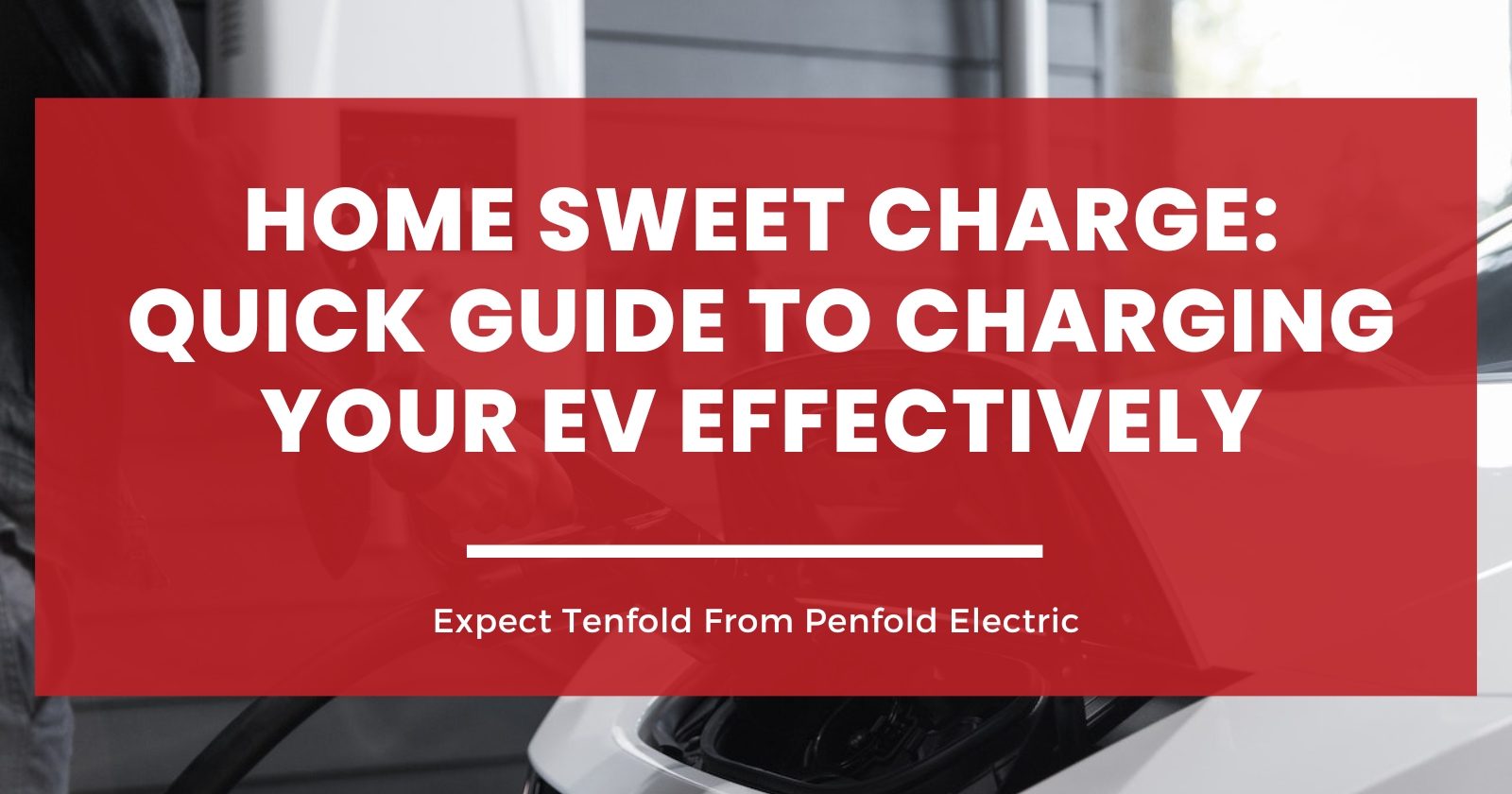It might seem like everywhere you look these days, someone is driving an electric car. Though it took some time to become mainstream, more and more drivers are opting for electric vehicles to help them save money at the pumps or to avoid using fossil fuels completely. Advancements in electric vehicles have made it possible to drive farther and longer on battery power alone, though for many looking to make the switch, charging ease and speed is still a top concern.
At Penfold Electric, we have recently been seeing an uptick in residential EV charger installation requests though many of our customers still have questions about whether Level 1 or Level 2 car charging stations at home are necessary. In this post, we help answer your top questions about at-home EV car chargers and help you feel more confident about making the switch to a PHEV or fully electric vehicle.
How Long Does It Take to Charge EV Cars at Home?
The charging time for an electric vehicle at home depends on several factors, including the type of charger you have installed and the capacity of your vehicle’s battery. Both Level 1 and Level 2 chargers can be suitable for at-home charging needs. Though when considering how fast can you charge an electric car at home, you’ll want to consider your personal usage needs. The details of Level 1 and Level 2 chargers listed below can be helpful in determining which type of charger is right for you.
Level 1 Charging (standard 120-volt outlet) – Level 1 charging is the slowest method and uses a standard household 120-volt outlet. With this setup, you can expect to gain about 3-5 miles of range per hour of charging. So, for a fully depleted battery with a range of 100 miles, it could take approximately 20-33 hours to fully charge.
Level 2 Charging (240-volt outlet) – Level 2 charging is much faster, as it uses a 240-volt outlet. A Level 2 charger can provide between 20-30 miles of range per hour of charging, depending on the electric vehicle and the charger amperage. This means you can fully charge a 100-mile range battery in about 3-5 hours.
Knowing how long to charge an EV car will depend on your usage needs, your charger type, and your vehicle’s battery capacity. Those that do a lot of driving or have a long commute may want to consider a Level 2 charger as this will help to ensure that your battery is fully charged when you need it. Our post, Electrify Your Garage: At-Home Charging Solutions For Modern Electric Car Drivers, offers additional insight into knowing whether a dedicated EV charger is right for you.
What Is the Fastest EV Car Charger?
The fastest EV car charger available for residential use is typically a Level 2 charger, which operates at 240 volts and can provide charging power up to 19.2 kilowatts (kW). Most Level 2 chargers offer power output ranging from 3.3 kW to 11 kW, but some high-power models can deliver even more.
When looking into how fast do EV cars charge, it’s important to note that the charging speed for your electric vehicle will depend on the car’s onboard charger, battery capacity, and the charger’s output capacity. Some electric vehicles may not be compatible with the highest-power Level 2 chargers, so consult your vehicle’s manufacturer for the most appropriate charging option for your specific car.
When Is the Best Time to Charge an Electric Vehicle?
The best time to charge an electric vehicle largely depends on two factors: electricity rates and your personal schedule. When considering how long does it take to charge an EV car, you’ll want to keep in mind these factors.
Electricity rates – In many regions, electricity rates vary based on the time of day, with lower rates during off-peak hours when the overall demand for electricity is lower. Off-peak hours are typically during the nighttime or early morning. Charging your electric vehicle during these off-peak hours can help save money on your electric bill.
Personal schedule – Your personal routine and daily driving habits should determine when you charge your electric vehicle. It’s best to charge your EV when it’s convenient for you and when you have enough time to reach your desired level of charge. Many EV owners prefer to charge their vehicles overnight while they sleep, since this provides ample time to reach a full charge and often coincides with off-peak electricity hours.
Learning how long to charge an electric car at home may be a bit of a learning curve though incorporating it into your daily routine will likely offer best results. Our post, Make Charging Your EV More Convenient With An In-Garage Charging Setup, offers additional insight into how you can make your charging routine even better.
How Can I Get an EV Charger Installed at Home?
If you are looking to upgrade your at-home charging experience, installing a Level 1 or Level 2 EV charger is a smart call. You can count on the experts at Penfold Electric to provide you with expert EV charger installation services as we are the electric contractor company Durham Region residents rely on. Contact a member of our team today. You can expect tenfold from Penfold Electric.

